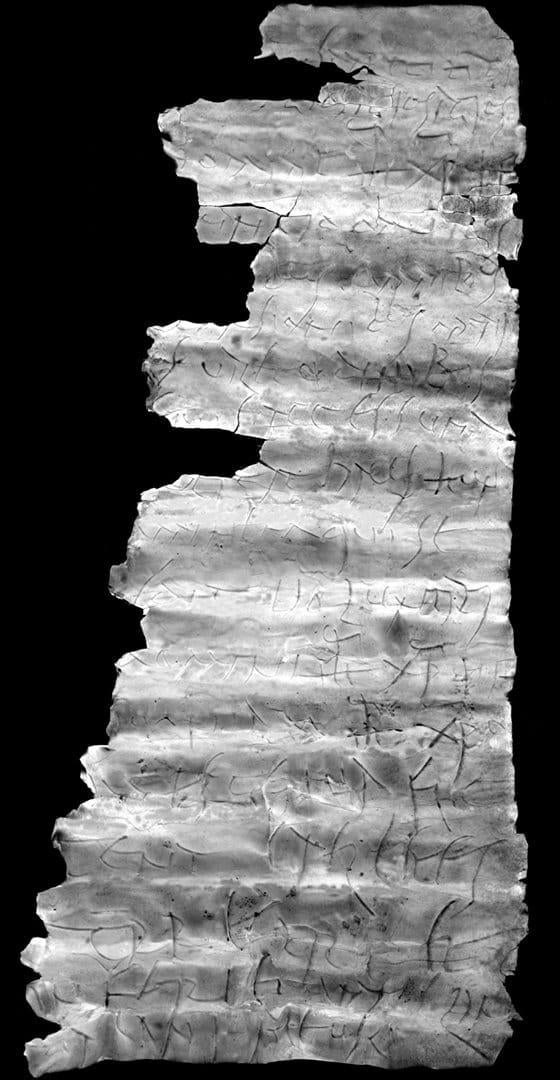Ancient inscription could rewrite history of Christianity north of Italy, archaeologists say
Archaeologists have discovered an inscribed silver amulet that one theologian now says may rewrite the history of Christianity north of the Alps mountain range.
The inscribed amulet was found buried in a grave in Frankfurt, Germany in 2018, according to a news release from the city. The amulet is just over an inch in size, the city said, with an inscribed thin silver foil rolled up inside. It took years to determine what the inscription said: It had to be deciphered by a computer scan because the foil was too fragile to unroll. The so-called "Frankfurt Silver Inscription" was presented to the public earlier in December.
The inscription was determined to be a statement of faith in Jesus Christ, written in Latin. The statement shows that the wearer "was clearly a devout Christian, which is absolutely unusual for this time," the city said.
Researchers dated the grave where the amulet was found to between 230 and 270 AD. This is the earliest evidence of Christianity north of the Alps, the city said: All other finds are several decades younger, with "reliable evidence" of the religion in the region dating back to the 4th century.
The inscription mentions no religion besides Christianity, which researchers said is unusual. Up until the 5th century, these kind of amulets "always contain a mixture of different faiths," such as Judaism or paganism. Instead, it is entirely based on Christianity. At one point the invocation "Holy, holy, holy!" is present. Researchers previously had dated that invocation no earlier than the 4th century. The amulet also included quotations from the Bible used by Christians at that time.
"The 'Frankfurt Inscription' is a scientific sensation," city mayor Mike Josef said in a translated statement. "It will force us to turn back the history of Christianity in Frankfurt and far beyond by around 50 to 100 years. The first Christian find north of the Alps comes from our city: we can be proud of that, especially now, so close to Christmas. Those involved have done a great job."
Researchers said that this find will lead to a reevaluation of the burial ground where the amulet was uncovered. It will also lead to a revision of ideas about Christianity north of the Alps.
German church historian Ulrich Volp told the Evangelical Press Service that the amulet can be used to help understand how Christianity spread through the Roman Empire in the 3rd century, even amid persecution.
"The significance of the discovery can hardly be overestimated," Volp said.
The news comes about six months after a experts in Germany said a newly deciphered manuscript dating back 1,600 years was determined to be the oldest record of Jesus Christ's childhood.




